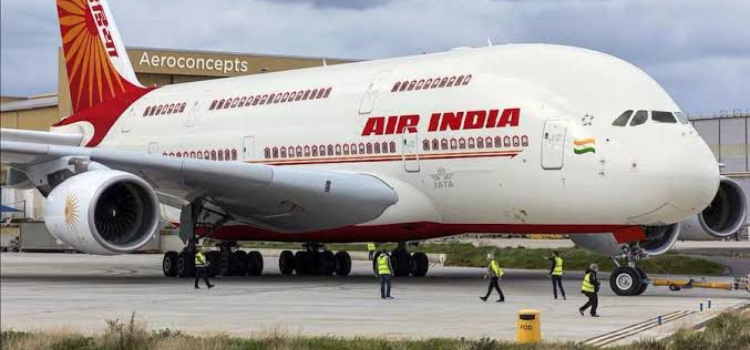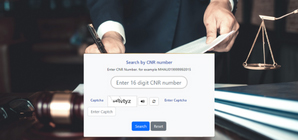Aviation Rules On Air India Incident
Posted On : January 31, 2023

Table of Contents
The recent case of an inebriated man who urinated on a woman passenger on an Air India flight has taken the news by storm. Every day there is new information that is coming up whether that this related to the aspect of how the incident took place or who actually was the one to urinate. Yes, with the recent headlines stating that the man’s lawyers are claiming now that the elderly lady urinated on herself owing to health reasons. The case caused a massive stir among the people while some claiming that the attitude taken by the crew was not professional or responsible at all and others being angry over the incident in itself was something that no one could have foreseen. While the case is still being discussed, here is a short overview of the piece of legislation that governs aviation in India-
BACKGROUND OF THE CASE
The person in question has been identified as Shankar Mishra, who is a resident of Mumbai and the vice president of the Indian Chapter of an American multinational finance company called Wells Fargo. Mishra is accused of removing his pants zipper and peeing on the female passenger. It's noteworthy that this week's incident just came to light. The airline suspended the man for 30 days after the event. The elderly woman, who was subjected to this shocking fate, was stuck in the washroom for 20 minutes as she did not want to return to her soiled seat. The cabin crew gave her a set of pyjamas and one pair of slippers to change into and allegedly did not take any sort of action against Mishra. He has also refused to cooperate with the investigation. Mishra's attorneys released a statement addressing the event soon after. They claimed that their client had cleaned the victim's luggage and clothing on November 28 and delivered them back to her on November 30. According to Mishra's side, the woman's message made it apparent that she approved of the alleged behaviour and that she had no intention of filing a complaint; the only issue that remained unresolved was whether the Airline had provided appropriate compensation.
However, an FIR was soon filed by the Delhi Police against him under the following sections of the India Penal Code 1860-
1. Section 294- Obscene act in public
2. Section 35- Assault or criminal force against a woman intending to outrage her modesty
3. Section 509- Word, gesture or act intended to insult the modesty of a woman
4. Section 510- misconduct in public in a state of intoxication.
According to Mishra’s advocate, they were in contact with the woman’s family and had offered Rs. 15,000/- as compensation along with the cleaning of her belongings but they returned the money. As per the latest developments, the Court has sent him to juridical remand for 14 days after he was arrested from Bangalore. The woman described the incident as follows in the letter another passenger entered the vehicle shortly after lunch was finished and the lights were turned off, walking to her seat completely inebriated. He removed his pants, went to the bathroom, and then kept showing her his intimate areas." The letter stated, " The man continued to stand there after urinating, exposing himself, and only moved after one of her fellow passengers begged him to leave. " Her footwear, backpack, and clothing were all fully covered with urine. The attendant took her to the seat, confirmed that it smelled like urine, and doused her bag and shoes with disinfectant” Air India’s conduct was also called unprofessional as said by the Directorate General of Civil Aviation said that they failed to comply with the rules while dealing with an unruly passenger. However, the rules do not have any straight-up penalising provisions with respect to the same. The grey area has been discussed under- THE LAW The Aircraft Act, 1934- The scope of this particular Act is better to control of the manufacture of aeroplanes, their possession, use, operation, sale, import and export. The Act also grants or vests in the government the authority to make rules and laws governing India's civil aviation. Along with stringent requirements for effectiveness, aircraft upkeep, airworthiness, registration, common flying scenarios, safety, and the way investigations are carried out in the event of a discrepancy. The Act also appointed the director-general of civil aviation as the regulatory authority to deal with these issues in civil aviation, governing the standards for airworthiness, safety, and transportation, as well as for the enforcement of civil air regulations.
The Act mentioned above also comes with a set of rules, i.e the Aircraft Rules, 1937 which sheds a light on how an unruly passenger may be dealt with among other things. Rule 23 states that- No person shall, on board an aircraft, ─
(a) assault, intimidate or threaten, whether physically or verbally, a crew member who may interfere with the performance of the duties of the crew member or lessens the ability of the crew member to perform those duties;
(b) refuse to follow a lawful instruction given by the Pilot-in-Command, or on behalf of the Pilot-in-Command by a crew member, for the purpose of ensuring the safety of the aircraft or of any person or property on board or for the purpose of maintaining good order and discipline on board.
Additionally, Rule 23 states that- No person shall, on board an aircraft, ─
(a) assault, intimidate or threaten, whether physically or verbally, any person,
(b) intentionally cause damage to or destroy any of property,
(c) consume alcoholic beverages or drugs, which is likely to endanger the safety of the aircraft or of any person jeopardizes the good order and discipline on board the aircraft.
However, the Act does not talk about any punishment for the above-mentioned rules. It is also mentioned that the Pilot-in-command needs to hand over the suspected offender to the competent authorities. Other than these rules, Rules 77A and 77B talk about the notification and investigation of incidents. The former requires the pilot-in-command to notify the Director-General of the said incident within 48 hours of the same. However, if the incident in question is serious, then the information should be given within 2 hours in the quickest way possible. Rule 77C talks about the procedure for the said investigation wherein the DG will appoint an Inquiry Officer who will further look into the matter. However, the rules do provide any provisions in order to penalise an unruly passenger.



















